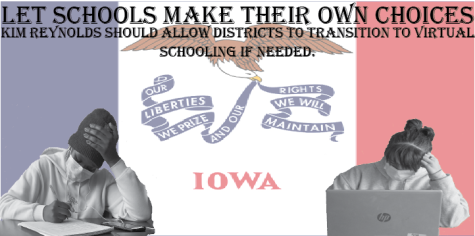The Rundown: Net Neutrality
February 26, 2018
On December 14th, 2017, President Donald Trump announced that the concept of net neutrality will be revoked and eventually Congress will vote on it again to decide whether or not this concept will stay or go.
For those of you don’t know what the net neutrality is, here’s a rundown… net neutrality is the idea, principle, or requirement that internet service providers should or must treat all internet data as the same regardless of kind, source, or destination. Say you have a provider like Mediacom or DirectTV and through those companies you have streaming companies like Netflix, Hulu, or Amazon Prime, depending on which apps are more popular, the companies can decide which they want to modify and out all their money into. For example, Netflix vs. Hulu… the two most popular movie/tv show networks, the company can decide, based on popularity, which will have more “bonuses” (faster responses and connection) and the one that falls short, people might have to pay extra for. The same goes for social media, there is a possibility that some apps may now require payments in order to keep an account.
The voting on this topic had a lot of people feeling conflicted. Many felt like the voting was one-sided and not fair. But those who follow net neutrality closely know that Congress or any major legislative branch had no say in this, it was FFC.
“I was shocked by the voting, I honestly thought it would be the opposite effect” junior Edgar Salazar said. “I would’ve kept it because personally, I don’t see any problem with it, all I hear when the topic of net neutrality comes into play, it’s all negative, I want to focus on the positives.” According to Salazar, if net neutrality were to be taken away, from what he has researched, it could lead to more paywalls. A paywall is an arrangement whereby access is restricted to users who have paid to subscribe to the site.” So, if companies don’t pay up, their sites could end up being blocked.
It seems from the public’s point of view that net neutrality and what it means spells the end of the world for all those with social media, the truth is, it doesn’t. You can make the decision to cut off some social media apps from your life because most of them aren’t beneficial to your health. Studies show that social media causes anxiety and depression due to drama, cyberbullying, and more. It wouldn’t be a bad thing to unplug and focus on something other than what’s going on in a screen, focus on the important things in life, like the people around you.
The other side of this issue is that net neutrality is actually a good thing, in fact, it may be a blessing in disguise. According to flashrouters.com, net neutrality will be setting up more regulations against illegal websites. The website states ” Many worry that without regulation, illegal content and activity will run rampant on the Internet. This is not the case. ISPs are treated as a regulated common carrier, preventing activities such as illegal file sharing.”.
The website also talks about how it still will protect freedom of expression on the world wide web. The website states “Websites such as blogs, services, and businesses that abide by the law are able to operate legally. As long as laws go unbroken, content will not be censored. Without net neutrality, ISPs could potentially censor slanderous content or even content they do not agree with.”
But even though there are some pros to this concept, in the public’s eye, it’s nothing but stressful not knowing what’s going to happen and what the future holds.





